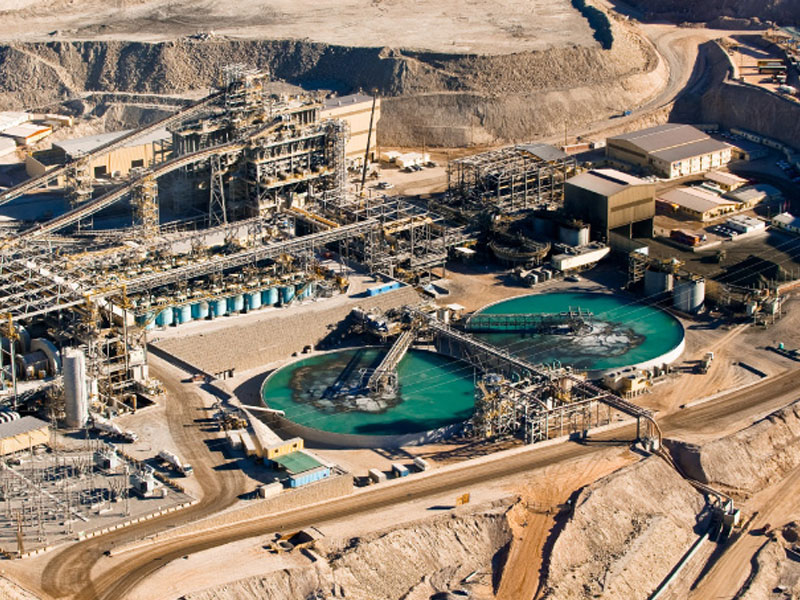
The objective of the Collahuasi Infrastructure Development and Productive Capacity Improvement project is to ensure the operational continuity of the site until 2040.
The port operations promoted by the mining company Doña Inés de Collahuasi since last year in the Tarapacá Region, within the framework of the execution of its C20+ Project - which extends the operation for 20 years, incorporates a desalination plant and increases productive capacity - It has meant an important promotion of port infrastructure, the dynamism of the regional logistics chain and the hiring of local suppliers.
In this context, a new cargo transfer (last July) of 2,205 pipes was carried out through Iquique International Terminal (ITI), a logistics operation that adds to the arrival of 2,195 pipes last April, thus completing more than 4,000 pipes. 15 meters long that for the first time were unloaded and mobilized within the Tarapacá Region.
Scopes of the project
The initiative includes the improvement of the processing capacity of sulfide minerals from 170 ktpd to 210 ktpd and the modification of the leaching technology to bioleaching technology, in the production line of copper cathodes for the processing of 35 ktpd of ore. mixed (sulfurized and oxidized).
The expansion and optimization works will be located in two main areas: Faena Cordillera, where the Rosario Pit and dump, the plant and the tailings deposit are located, and in the Coastal Edge area, where Puerto Collahuasi is located, which has as first stage the construction of a desalination plant (under construction) and its respective drive system, which will considerably reduce freshwater consumption.
In this way, in July 2022, the mining company awarded Acciona the construction of the desalination plant, a development that includes the execution of marine works, a pre-treatment system, the development of reverse osmosis and post-treatment technology to guarantee the availability of resources. water resources, as well as the operation and maintenance of the plant for two years.
Read also ► Quebrada Blanca Phase 2: Future development
Meanwhile, the water delivery system that will be executed by Techint contemplates the enabling of the 195-kilometer-long aqueduct along a route parallel to the existing mine pipeline, to the accumulation pools located more than 4,000 meters above sea level in the mountain range sector. Although the contract figures are not known, a reference is the agreement announced by Codelco, which will pay USD 1 billion for an 840 liters per second unit.
In the case of the works awarded by Collahuasi, it is a plant that will have a capacity of 1,050 liters per second, so it is estimated that it could represent close to a third of the total investment associated with the project.
'The execution of these contracts is key to the development of our project, where thanks to a new desalination plant, which is added to our 100% renewable electricity supply, it will allow us to continue making our operation more sustainable, modern and efficient, along with continue contributing to the economic and social development of Tarapacá and the country', assured after the award of the works, the executive president of Collahuasi, Jorge Gómez.
flotation cells
Within the framework of the implementation of the project, Collahuasi closed the award of new assets for the concentrator plant located at the Cordillera site.
Thus, at the end of March, the Finnish company Metso Outotec was awarded the purchase of six new flotation cells to be operational from the fourth quarter of 2024, contributing to maintaining recovery levels, given the increase in treatment that will be generated. the entrance to a new mill, which is currently under construction.
The new cells have the characteristic of low energy consumption, which contributes to the reduction of Greenhouse Gases (GHG), the use of less auxiliary equipment for their operation and greater performance and metallurgical performance, with lower maintenance costs.

 Últimos Eventos
Últimos Eventos Publicidad / Media Information
Publicidad / Media Information Ediciones Digitales
Ediciones Digitales Contáctenos
Contáctenos







